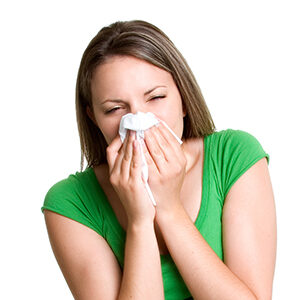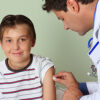
Spread Holiday Cheer, Not Vaccine-Preventable Diseases
Flu, mumps and pertussis all spreading, can all be prevented with vaccines this holiday season; health district offers tips on when to seek care from healthcare provider
For more information, contact Kim Papich, SRHD Public Information Officer (509) 324-1539 or kpapich@srhd.org
SPOKANE, Wash. – Before spending time with loved ones this holiday season—especially people at higher risk for complications from illness—there is still time get vaccinated for several diseases that are currently circulating in Spokane County.
“No one wants to gift an illness to someone they care about during the holidays, especially a disease that could be prevented with vaccination,” said Betsy Bertelsen, Spokane Regional Health District epidemiologist. “Your best chance at protecting yourself and loved ones from diseases like flu, mumps and pertussis is to get vaccinated soon.”
Vaccinations against all three diseases are available at numerous locations throughout Spokane County, including healthcare provider offices, local pharmacies and grocery stores.
“We also want to emphasize that people who are sick should stay home from holiday gatherings where influenza and other illness can spread. If you are feeling ill, it’s better to miss some of the holiday fun than to risk infecting others – especially those people who are at higher risk of serious complications,” said Bertelsen.
Individuals concerned about getting sick can also reduce their risk of becoming ill by washing hands frequently and avoiding sharing drinking glasses, eating utensils, water bottles, cigarettes, and makeup.
Flu
The flu is a contagious respiratory illness caused by viruses that infect the nose, throat and lungs. Flu activity continues to increase in Spokane County, already claiming the lives of two adults this season and hospitalizing 66 others. Last flu season, 14 residents’ deaths were attributed to flu-related complications and 315 people were hospitalized due to flu locally.
People who have the flu often feel some or all of these symptoms:
- Fever or chills
- Cough
- Sore throat
- Runny or stuffy nose
- Muscle or body aches
- Headaches
- Extreme fatigue (very tired)
This year’s flu vaccine offers protection against the most common flu viruses. Flu vaccination also may make a person’s illness milder if they do get sick. Centers for Disease Control and Prevention (CDC) recommends everyone 6 months of age and older get immunized against flu. The vaccine promotes antibody protection within two weeks.
Some people, such as those over the age of 65, young children, pregnant women, American Indian/Alaska Natives and those with certain health conditions, are at higher risk for serious flu complications.
Seeking care When it comes to flu and seeking care from a healthcare provider, those people at higher risk of complications should call their provider when ill. While most people who do become ill with flu can be safely cared for at home, there are some symptoms, like trouble breathing, that should trigger immediate emergency care.
Mumps
Mumps is a contagious disease caused by a virus. It typically starts with a few days of fever, headache, muscle aches, tiredness, and loss of appetite, followed by swollen salivary glands.
Spokane County’s recent mumps outbreak ended this past June with 334 total cases. Although the outbreak was contained with increased community vaccination and school exclusions, the health district, as expected, continues to see a small number of new cases.
A measles-mumps-rubella (MMR) vaccine prevents most cases of mumps. Although the risk of acquiring mumps to Spokane’s general population is low, health officials urge individuals to get vaccinated.
Seeking care Officials from the health district advise individuals who experience mumps symptoms to seek medical care from their healthcare provider.
Pertussis
Pertussis (whooping cough) is a serious disease that begins with a cough and runny nose. After one to two weeks, the cough worsens. Children may have rapid coughing spells that end with a “whooping” sound. Adults may have less severe symptoms, but often have a cough which can last for many weeks.
On average, the health district is seeing three cases of pertussis confirmed monthly.
Whooping cough vaccines are recommended for all children and adults. Babies get their first dose of diphtheria, tetanus, and acellular pertussis vaccine (DTaP) at two months of age and need a series of these shots to get the best protection. A single tetanus diphtheria and acellular pertussis vaccine (Tdap) vaccination is recommended for adults aged 19 and above who have not had a pertussis vaccination in adulthood.
Seeking care It is important to consider a diagnosis of whooping cough whenever someone has a persistent cough, especially if it lasts longer than two weeks, or if the coughing occurs in spells followed by difficulty catching the breath or gagging. If a person thinks they or a family member has whooping cough, they should call their healthcare provider.
For more information about vaccine-preventable diseases, visit srhd.org. Spokane Regional Health District’s website also offers comprehensive, updated information about Spokane Regional Health District and its triumphs in making Spokane a safer and healthier community. Become a fan of SRHD on Facebook to receive local safety and wellness tips. You can also follow us on Twitter @spokanehealth.



